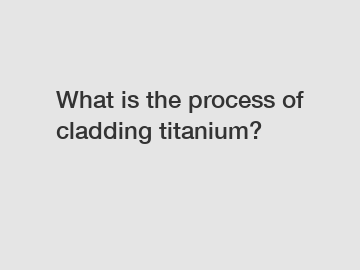Aluminium Coil Production and Applications
https://www.alupaintcoil.com/products.html
Introduction
In the realm of industrial materials, aluminium coil stands out as a versatile and indispensable component. This article delves into the intricacies of aluminium coil production and explores its myriad applications across industries.
Raw Material Selection
The journey of an aluminium coil begins with meticulous raw material selection. High-purity aluminium ingots, sourced through a stringent vetting process, form the foundation of quality coils. This initial step ensures the end product's durability, corrosion resistance, and overall performance.
Melting and Casting
The selected aluminium ingots undergo a precise melting and casting process. This phase involves subjecting the raw material to extreme temperatures, transforming it into molten aluminium. The molten metal is then cast into the desired shape, laying the groundwork for the subsequent rolling process.
Hot Rolling
Hot rolling is a pivotal stage where the cast aluminium undergoes mechanical deformation at elevated temperatures. This process imparts the coil with its characteristic flatness and uniform thickness. The resulting strip is then coiled for further refinement.
Cold Rolling
Precision takes center stage in cold rolling, where the hot-rolled coil undergoes controlled compression to achieve the desired thickness and surface finish. This step enhances the mechanical properties of the aluminium, ensuring it meets the stringent quality standards demanded by diverse applications.
Finishing and Coating
To enhance its functionality and aesthetic appeal, the aluminium coil undergoes finishing and coating processes. These can include surface treatments, coatings for corrosion resistance, and the application of protective films, ensuring the coil meets the specific requirements of its intended use.
Further reading:Hastelloy Clad Plate: The Perfect Fusion of Strength and Corrosion Resistance
The Advantages of Hot Rolled Steel Plates
13 FAQ About MPP Power Pipe
What To Consider When Choosing Business Trash Cans
What Is A Graphite Electrode?
Sintered Porous Metal Stainless Steel Discs: Versatile and Reliable
Why has the demand for custom aluminum coils surged?
Applications
The versatility of aluminium coil finds expression across a multitude of applications, such as:
1. Construction Industry
Aluminium coils serve as a cornerstone in the construction industry, finding applications in roofing, facades, and structural components due to their lightweight nature and corrosion resistance.
2. Automotive Sector
In the automotive sector, aluminium coils contribute to lightweight vehicle design, improving fuel efficiency without compromising structural integrity.
3. Packaging
The malleability and formability of aluminium coils make them ideal for packaging applications, ensuring the preservation of contents and contributing to sustainable packaging solutions.
4. Electronics
Aluminium coils play a crucial role in the electronics industry, where their conductivity and thermal properties make them essential for various electronic components.
Conclusion
In conclusion, the journey from raw material selection to application is a testament to the meticulous processes involved in aluminium coil production. Its ubiquity across industries underscores its significance, making it a linchpin in modern manufacturing and construction. This comprehensive overview aims to provide insights into the world of aluminium coil, positioning it as a critical player in various industrial landscapes.
Woven Gabions vs Welded Gabions: Unraveling the Best Choice
How Flexible is Tungsten Wire?
The Benefits of Using Graphite Crucibles
what is fire glass used for?
Why is the price of tungsten rising?
Unveiling the Marvels of Carbon Electrodes: A Sustainable Solution for a Greener Future
What is the difference between security screen and security film?


